
"I consider trial by jury," Thomas Jefferson said, "as the only anchor ever yet imagined by man, by which a government can be held to the principles of its constitution."
Trial by jury has been around for hundreds of years. England's Magna Carta (1215 A.D.) mentions a form of jury trial. But it wasn't until the 1600s that the accused were given the right to a trial by jury to safeguard their rights. In response to the Stamp Act of 1765, which denied violators in the American Colonies a trial by jury, the Stamp Act Congress stated: "[T]rial by jury is the inherent and invaluable right of every British subject in these colonies."
All state constitutions guarantee this right, which dates back to the 13 Original Colonies. In 1791, the Bill of Rights made it the law of the land in the Sixth Amendment to the Constitution: "In all criminal prosecutions, the accused shall enjoy the right to a speedy and public trial, by an impartial jury of the State and district wherein the crime shall have been committed." But how are jurors selected? What is jury duty like? I recently discovered the answers to these questions.
Similar to other U.S. citizens who are registered voters with driver's licenses or state identification cards, I was eligible to serve on a jury. When I received a summons in the mail to report for jury duty, I made a note of the date and cleared my calendar. People who fail to answer a summons can be held in contempt of court and face punishment or legal action against them. Employers are required to allow their workers to report for jury duty without penalties to them.
Diese Geschichte stammt aus der May/June 2023-Ausgabe von Cobblestone American History Magazine for Kids.
Starten Sie Ihre 7-tägige kostenlose Testversion von Magzter GOLD, um auf Tausende kuratierte Premium-Storys sowie über 8.000 Zeitschriften und Zeitungen zuzugreifen.
Bereits Abonnent ? Anmelden
Diese Geschichte stammt aus der May/June 2023-Ausgabe von Cobblestone American History Magazine for Kids.
Starten Sie Ihre 7-tägige kostenlose Testversion von Magzter GOLD, um auf Tausende kuratierte Premium-Storys sowie über 8.000 Zeitschriften und Zeitungen zuzugreifen.
Bereits Abonnent? Anmelden
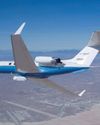
Eye in the Sky
An interview with Joe Piotrowski
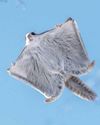
Airborne Animals
Humans have taken to the skies in balloons, gliders, and airplanes-but we're not alone among the clouds. Animals of all sorts have evolved to harness wind power.
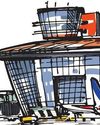
TAKING OFF
The Wright brothers expected airplanes to “take off,” but even they might be amazed at the way the airline industry has become big business. In the past, it was expensive to send something by plane.

GROWTH OF AN INDUSTRY
After their historic flight at Kitty Hawk in 1903, Wilbur and Orville Wright returned to Dayton, Ohio. They spent the next few years making adjustments and building additional versions of their powered aircraft in their bicycle shop.
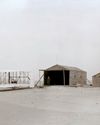
WHY KITTY HAWK?
The Wright brothers searched carefully for the best place to test their gliders and flying machines. Their main concern was for good, steady winds. But they also hoped to find a remote location to allow them to perform tests away from the public eye.
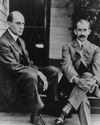
Two Brothers From Ohio
Most people do not realize that the Wright brothers—Wilbur, born in 1867, and Orville, born in 1871—performed various scientific experiments before inventing their aircraft. For as long as anyone in their hometown of Dayton, Ohio, could remember, the Wright boys had worked on mechanical projects.
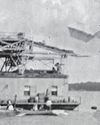
A Helping Hand
May 6, 1896. A group of people who had gathered beside the Potomac River, just south of the U.S. capital, grew quiet. Then, it erupted in cheers as a small, unmanned aircraft took to the skies and flew for more than half a mile. The flight came seven years before the Wright brothers’ first manned, powered flight. The inventor of the aircraft was Dr. Samuel Pierpont Langley.
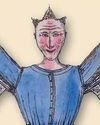
THE IDEA MEN
People dreamed of flying thousands of years before the Wright brothers found success near Kitty Hawk, North Carolina. These dreamers, such as Leonardo da Vinci, studied birds flying and imagined how humans might do the same—if only they had wings. Other men developed a more hands-on approach to the topic. Early inventors made wings of cloth, glue, and feathers and tied these creations to their arms in an attempt to imitate nature.
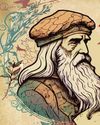
Da Vinci's 4 Designs
Have you ever wondered how a bird flies? Leonardo da Vinci (1452–1519) did. He thought that understanding how a bird flies would provide the key to human flight. So, what did da Vinci learn from birds?
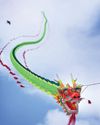
Silken Wings
Seven hundred years before the Wright brothers began experimenting with human flight, the Chinese had already mastered its secrets—with kites.